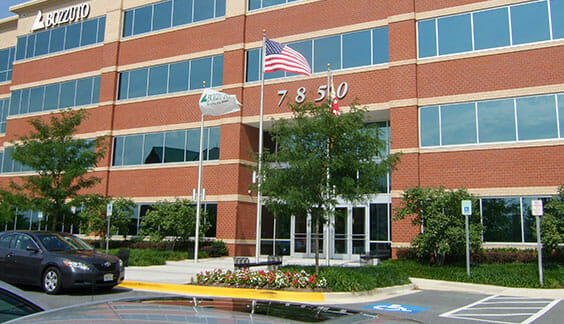Experienced Attorney Grievance Defense Lawyer in Maryland
If you are a licensed Maryland attorney who has received a complaint letter from the Maryland Bar Counsel, it is imperative that you contact an attorney grievance defense lawyer right away. Your response to this letter will impact whether Bar Counsel decides to docket the complaint or summarily terminate their investigation. A poorly conceived or drafted response, or failure to respond in a timely manner, can lead to a chain of events resulting in reprimand, suspension or even disbarment by the Maryland Court of Appeals. Richard Finci, Houlon Berman’s top attorney grievance defense lawyer, with offices in Montgomery and Prince George’s County, can help guide you through the grievance process, applying his years of experience in these matters to protect your professional reputation and future career.
Did you receive an attorney grievance complaint letter? Get help today. Contact us online or give us a call at one of our convenient locations.
Why Shouldn’t An Attorney Self-Represent?
When a Maryland attorney receives a complaint letter from Bar Counsel, self-representation is always an option. Many attorneys who receive these complaints, however, choose to respond immediately without fully considering the implications of their response and in an emotional manner. Since the complaint letters often attack the attorney’s character or credibility, legal acumen, ability and/or professional judgment, it is a natural reaction for the Attorney’s emotions to impact upon the content and appropriateness of their response. The best attorney’s know that it is unwise to represent yourself no matter how many years of experience or expertise in the subject of the underlying representation. Impaired judgment after receiving a bar counsel complaint letter can lead to the following common mistakes:
Common Mistakes Made After Receiving an Attorney Grievance Complaint
- Ignoring the letter and failing to submit a response or failing to respond to follow up requests in a complete and timely manner. We are all busy and time gets away from us.
- Submitting a response to the letter after the deadline has already passed.
- Not fully addressing the initial complaint letter. Your responsive letter should be factually accurate and corroborable as well as researched where necessary.
- Misleading, evasive or outright false information in the response. Ethical lapses that were small problems become major problems under these circumstances.
- Failing to appropriately and fully address escrow and financial issues.
By hiring an experienced attorney grievance defense lawyer, you increase your chances of getting the complaint dismissed before Maryland Bar Counsel takes further action. Richard Finci is committed to and ensuring that your response is timely, accurate and before it is sent to Bar Counsel.
The Steps in the Process
The Complaint letter– is the first step in the process as described above.
Docketing the Complaint-if Bar Counsel is not satisfied with the explanations in the letter, the Complaint will be docketed and proceed more formally. An investigator for Bar Counsel may be sent to interview the Complainant and any witnesses. You may be required to give a formal statement, under oath, to Bar Counsel. This statement is taken like a deposition and it is imperative that you be fully prepared to respond to Bar Counsel’s questions. It is shocking how many times an Attorney has told Bar Counsel that he or she did not review any materials prior to this deposition.
Peer Review-the peer review process is a preliminary stage designed to separate the serious cases from the cases that can be resolved informally. A peer review panel is appointed and holds a 1/2 day hearing/meeting at which Bar Counsel presents a truncated case, usually allowing the Complainant to testify and the Attorney to respond, full documents are presented and the Peer Review panel is asked to make recommendations. Sometimes informal discipline is discussed at these hearings. If there is no resolution at the Peer Review meeting, the panel will recommend for or against formal discipline or that a Petition for Disciplinary or Remedial action be filed. This is a very important step for the Attorney and another key opportunity to avoid formal discipline. The best Peer Review results are almost always those where the Attorney was represented.
Petition for Disciplinary or Remedial Action-this is the Petition that brings the allegations before the Court of Appeals. The case is then assigned to a Circuit Court judge in the County where the Attorney primarily practices and the matter moves forward under strict time deadlines. The civil rules of discovery apply and a Court trial is eventually held. At the end of the trial, both sides submit Proposed Findings of Fact and Conclusions of law in writing. The judge then prepares such findings in writing.
Court of Appeals Argument– is the final stage of the process. Each side submits to the Court of Appeals any Exceptions to the Findings of Facts and Conclusions of Law along with Recommendations for Sanctions. The Court holds oral argument and takes the case under advisement. A published opinion is rendered a few weeks or months after oral argument.
Possible Outcomes Of An Attorney Grievance Complaint
If the attorney grievance complaint makes it all the way to the Maryland Court of Appeals, there are many sanctions that can be imposed on the attorney. Although it is still possible for the case to get dismissed, there are several other potential outcomes, including the following:
- Dismissal of the Complaint with or without formal charges.
- Conditional Diversion Agreement (CDA): An agreement between Bar Counsel and the attorney that remediate the reasons misconduct occurred. Through a CDA, attorneys may be supervised by more experienced attorney’s or required to partake in educational activities in their area of practice or regarding ethics and the Maryland Lawyers’ Rules of Professional Conduct.
- Public or private reprimand.
- Short or Long term Suspension.
- Disbarment: the highest disciplinary sanction. Certain violations will always result in disbarment, including the conviction of a crime or stealing from an escrow account.
Hire Richard Finci Today
Richard Finci has years of experience successfully representing Maryland attorneys before Bar Counsel, at Peer Review hearings, at disciplinary fact-finding hearings before the Circuit Court and in the final hearings before the Maryland Court of Appeals. Richard is a former peer review attorney, meaning he has served on many peer review panels reviewing the actions of other lawyers in grievance matters. Through this experience, he observed both the right way and wrong way for Attorney’s to handle Complaints they may have received from Bar Counsel. Those years of experience provided a comprehensive understanding of the nuances surrounding attorney grievance complaint procedures.
With his help, you will know exactly what to expect throughout the Maryland attorney grievance process, and even more importantly, how to achieve the best possible outcome. The earlier you get an attorney grievance defense lawyer involved, the more likely you’ll be able to get the complaint dismissed. Whether you still need to respond to the complaint letter, or Bar Counsel has decided to continue their investigation following your initial response, Richard Finci is here to help fight for you.
Looking for help navigating the Maryland attorney grievance process? Contact us online or give Richard Finci a call today.


